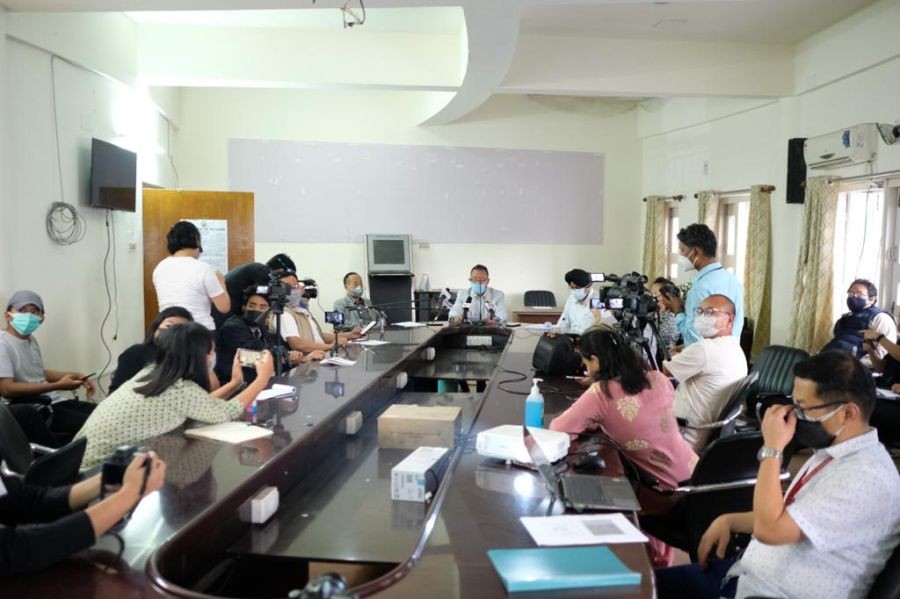A section of journalists during a press conference held in Kohima. (Photo Courtesy: Twitter)

Vishü Rita Krocha
Kohima | May 3
“Digital media has given a huge push to the traditional journalism to be on its toes to meet the challenges,” says Senior Journalist and President of Nagaland Press Association, H Chishi on World Press Freedom Day that falls on May 3. In relation to this year’s theme, ‘Journalism under Digital Siege,’ he feels that “the emergence of new age/digital media has impacted the traditional journalism to a great extent that journalists are forced to pack their bags and leave.”
In other words, he goes on to explain that the digital media is overpowering the traditional media that thousands of journalists engaged in traditional media are losing jobs. “There is no room for armchair journalists to survive in this digital age,” he points out while stating that “to meet this challenge, the traditional media will have to change its course of presentation to keep readers satisfied with wide range of information.”
Editor of North East Press Service (NEPS), Oken Jeet Sandham also observes that in the event of the internet coming into our lives; almost every conventional media activity has switched over to the internet. The problem arising out of this, he says, is that it has brought about “very complicated media.” Stating that the definition of media is very complicated today, he points to the number of random people on the streets who are disseminating ‘news’ on a regular basis without following the proper ethics of journalism.
“This has become a major challenge for professional journalists,” he puts across while asserting that this ‘major hurdle’ is also compromising the fundamentals of news/journalism in the process. Substantiating this, he says, “Because from the professional point of view, when a journalist starts disseminating news, we have some basics of gathering news.”
Given the information environment in the digital age, misinformation and fake news are also widely prevalent. “People tend to take everything as news and in this regard, we have been witnessing fake news. Sometimes, it’s very difficult to differentiate between the real news and fake news,” he puts across.
While digital media has been around for a while, he states that “the government is also struggling to regulate digital media” as the Press Council of India (PCI) only overviews the functioning of print media. In the areas of online and digital media, he points out, the government is still trying to formulate and regulate guidelines.
However, as far as the trend of digital media is concerned, he says that “digital is going to dominate and we have to accept that it is here to stay.” Which is why, he also emphasizes that “we have to strictly regulate and there should be totally professional experts in the digital field.”
Further talking about the freedom of the press, he says, “It is not completely free.” But as a journalist, he affirms that, “you may be sandwiched sometimes, but you must never compromise with the fundamentals of journalism.”
Meanwhile, on the occasion of World Press Freedom Day, Advisor to Chief Minister of Nagaland, Abu Metha also tweeted “On #WorldPressFreedomDay we need to reiterate humanity’s commitment to ensure that the press fraternity is protected from violence and suppression. Freedom of the press is essential for democracy to keep moving forward.”






